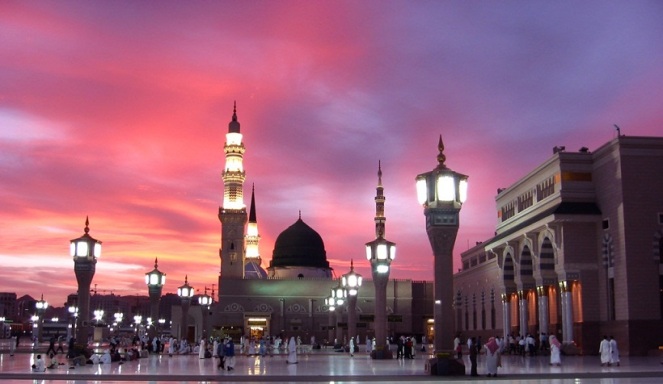
The city of Medina, where Islam emerged and where Prophet Muhammad is buried, is considered the second holiest city in the Islamic tradition, behind Mecca.
Since Muhammad’s death in 632, Medina has been virtually “off limits” to visitors who are classified as “non-Muslims.”
Medina’s exclusive status, however, could soon be changing in light of significant transformations within Saudi Arabia.
Avi Jorisch, a Jewish activist, author, and entrepreneur, recently had the honor and privilege of visiting the holy city, an experience he described in a recent article for the Jerusalem Post.
On the road to Medina, Saudi officials recently removed signs reading “Muslims only,” and last month, a delegation of Jewish business leaders closely affiliated with Israel visited the Prophet’s Mosque, Al-Masjid al-Nabawi, in Medina as part of a visit meant to promote mutual understanding, respect, and tolerance.
In reading Jorisch’s reflection, I am reminded that traveling the world has provided me with invaluable insight on our common humanity. Engaging in this form of cross-cultural navigation has offered me an education that is hard to get in the classroom.
I remember being completely in awe at the Hagia Sophia, an important historical location for both Christians and Muslims. I also remember visiting St. Peter’s Square at the Vatican and seeing Muslims appreciating and embracing that holy space.
Jorisch’s account also brings Medina to life. He also captures the diversity and richness ingrained in the Ummah.
Medina was sublime. Our guide took us into the open-air courtyard filled with massive umbrellas outside the prayer complex, which accommodates one million worshippers. We saw people from every corner of the globe speaking dozens of languages. When I sat down in sight of the mosque’s green dome, the resting place of the Prophet and two of the four righteous caliphs, with a vacant place for Jesus, I went through my own daily mediation process and thought deeply about the long arc of history. I looked at my fellow delegates and knew that each of them was forever changed by coming to the kingdom and to this holy place.
In short, Jorisch had a positive experience in Medina. Wherever he went, he and his colleagues found that they shared “deep family, personal, and business experiences” with their Saudi hosts. “It felt like old friends and family being reunited, not uncomfortable and guarded as many in the delegation had envisioned.”
A couple of “good encounters” across the perceived cultural, ethnic, national, and religious divides can certainly go a long way in changing the world. I hope one day to visit Medina to transform myself and the people around me.
Do other Christians hope to visit Medina too?
One thought on “Can a Christian Go to Medina?”